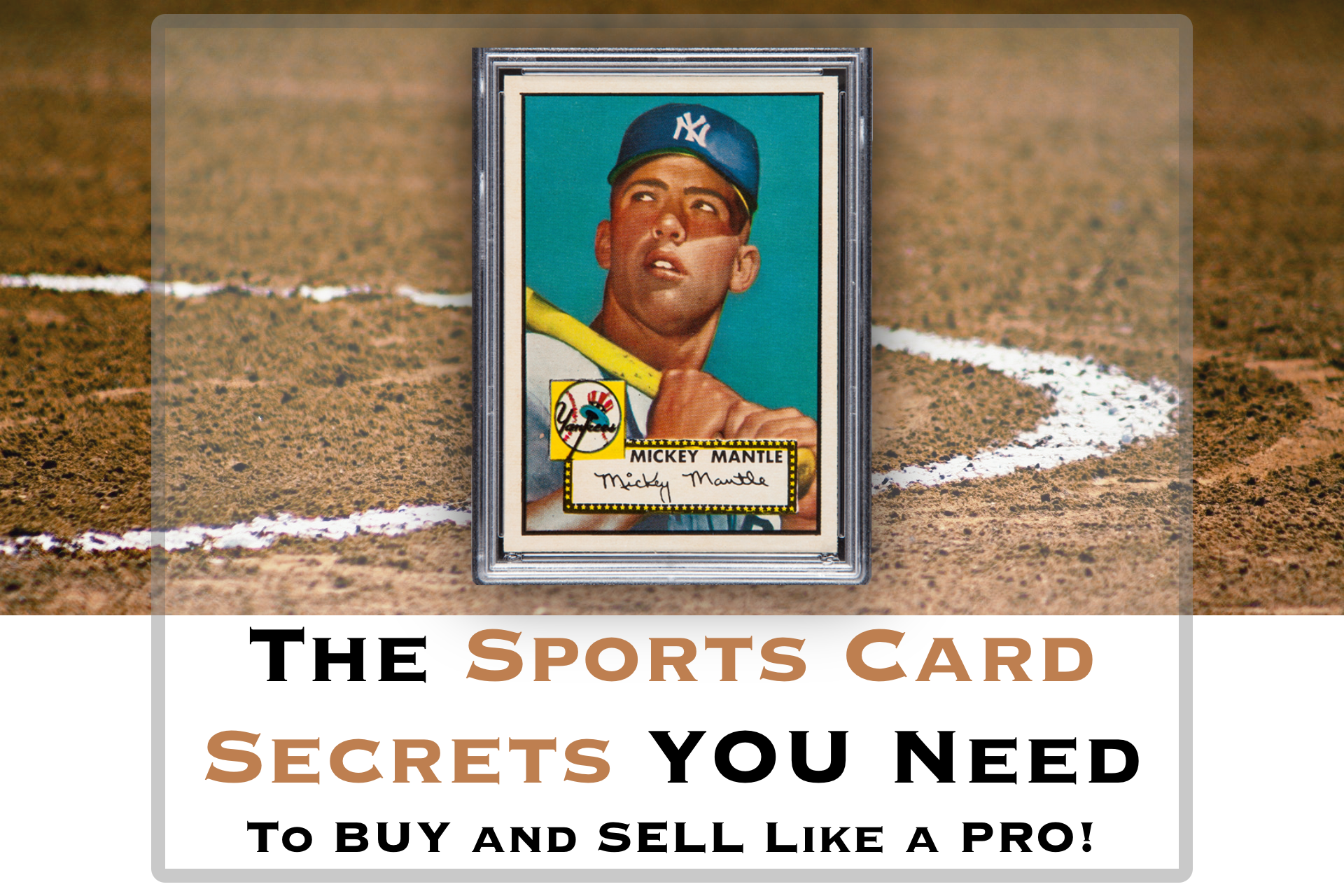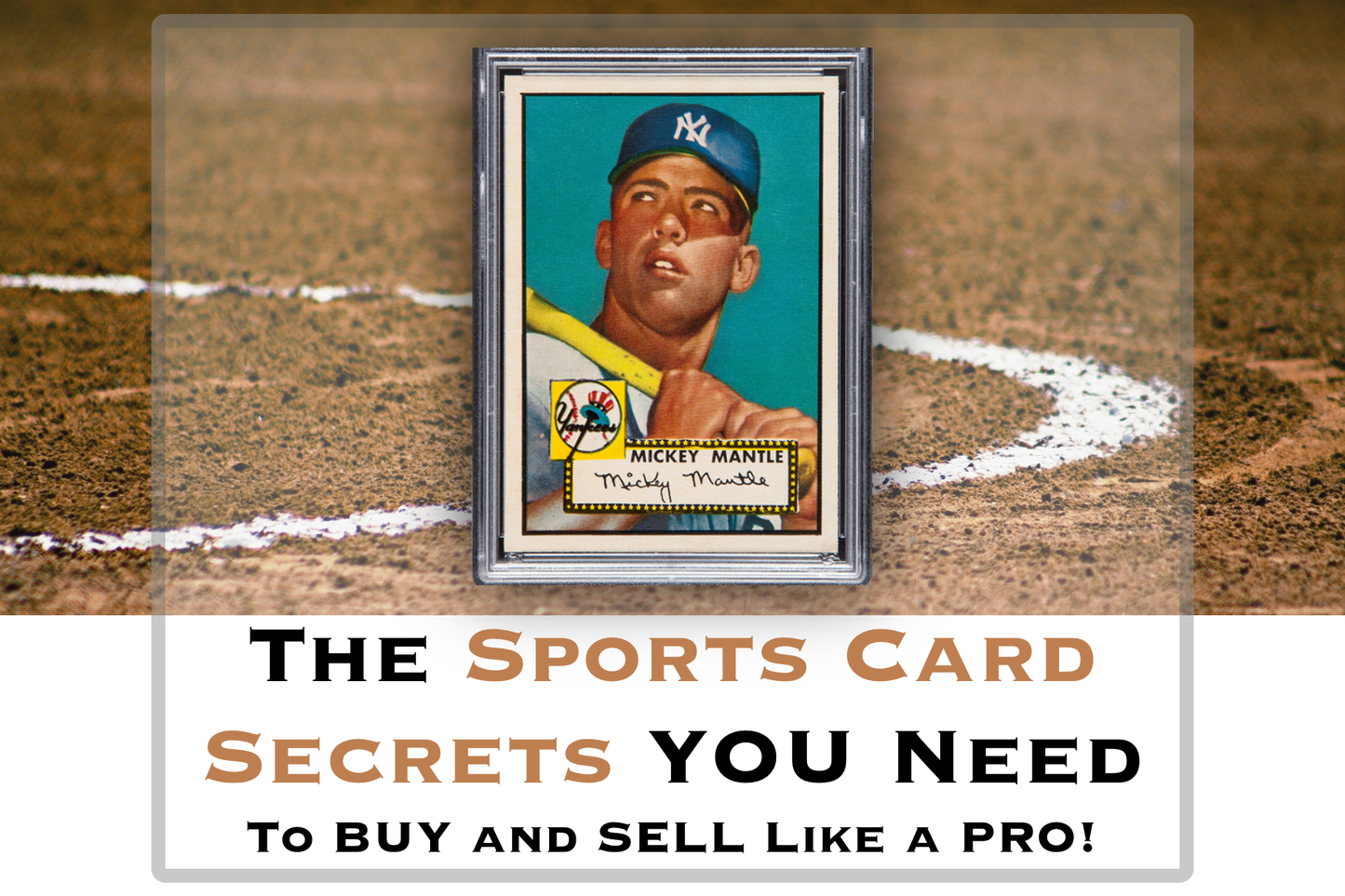
The SURPRISING History of Fleer Baseball Cards - the UNTOLD story
Imaging fighting a baseball card monopoly all by yourself...For OVER 50 years...
This is the SURPRISING History of Fleer Baseball Cards 1885-1950: Origins and Early Years
• 1885: Founding of Fleer Corporation o Frank H. Fleer establishes Fleer Corporation in Philadelphia, initially focusing on producing chewing gum, candies, and confectioneries.
• 1906: First Attempt at Bubble Gum o Fleer introduces "Blibber-Blubber," the company's first bubble gum product. However, it fails to gain commercial success.
• 1928: Success with Dubble Bubble o Fleer re-enters the bubble gum market with "Dubble Bubble," becoming the first commercially successful bubble gum. This success provides financial stability for future ventures, including trading cards. 1950s: Entry into the Trading Card Market
• 1957: Introduction to Trading Cards o Fleer enters the trading card industry by producing baseball cards. Their initial sets feature a mix of active and retired players, including stars like Ted Williams.
• 1958: Expansion of Card Sets o Fleer releases more comprehensive baseball card sets, enhancing design quality and increasing the number of players featured to attract collectors. 1960s: Growth and Legal Challenges
• 1960: Competitive Market o Fleer continues producing baseball cards but faces intense competition from Topps, which dominates the market by holding exclusive rights to active MLB players.
• 1963: Antitrust Lawsuit Against Topps o Fleer challenges Topps' monopoly by filing an antitrust lawsuit, seeking the right to produce cards featuring active Major League Baseball (MLB) players.
• 1966: Court Ruling o The court rules in favor of Topps, maintaining Topps' exclusive rights and limiting Fleer's ability to compete directly in the mainstream baseball card market. 1980s: Breaking the Monopoly and Market Expansion
• 1980: Victory in Antitrust Case o Fleer successfully wins an antitrust case against Topps, allowing them to produce baseball cards featuring active MLB players. This legal victory significantly expands Fleer's market presence.
• 1981: First Modern Baseball Card Set o Fleer releases its first modern baseball card set featuring active players, effectively ending Topps' 20-year monopoly. The 1981 Fleer set gains attention for its quality and inclusion of rookie cards, such as Fernando Valenzuela and Harold Baines.
• 1989: "Billy Ripken" Error Card o Fleer releases the infamous "Billy Ripken" error card, featuring a vulgar inscription on the bat knob. Fleer corrects the error multiple times, resulting in various versions that become highly sought-after collector's items. 1990s: Innovation and Market Challenges
• 1994: Acquisition of SkyBox International o Fleer acquires SkyBox International, a leading trading card company specializing in both sports and entertainment cards. This acquisition increases Fleer's market share and diversifies its product portfolio.
• 1998: Bankruptcy and Acquisition o Fleer Corporation declares bankruptcy due to ongoing financial difficulties. The company's assets and brand name are purchased by a group led by Alex Grass, founder of Rite Aid. 2000s: Decline and Acquisition by Upper Deck
• 2000-2002: Attempts at Revival o Under new ownership, Fleer attempts to revive its baseball card lines and explore new products but struggles to regain its former market position amid intense competition and a saturated market.
• 2003: Financial Struggles Continue o Fleer faces continued financial difficulties, exacerbated by increased competition from other card companies and declining consumer interest in sports cards.
• 2004: Efforts to Diversify and Innovate o Fleer makes further attempts to diversify its product offerings and innovate within the trading card space, but these efforts fail to stabilize the company's finances.
• 2005: Final Bankruptcy and Acquisition by Upper Deck o Fleer files for bankruptcy for the second time and ceases operations. Upper Deck, a major competitor in the trading card industry, acquires the rights to the Fleer name and its assets.
#fleer #baseballcards #sportscards








1 comment
Thank you for this informative blog.
FYI-
Fleer produced a set of baseball cards in 1923 (W515). It looks like the regular W515 cards on the front, which originally had nothing imprinted on the back. Fleer apparently imprinted Frank Fleer Corporation imprint and info on the back. I’m not sure how many cards of the set were produced in this way, but I understand they are very rare. Do you have info on these?